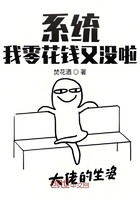He could hardly see his hand touching Cramier's heavy fist.Then he realized that she was standing so that their faces when they must say good-bye could not be seen.Her eyes were smiling, yet imploring; her lips shaped the word: "To-morrow!" And squeezing her hand desperately, he got away.
He had never dreamed that to see her in the presence of the man who owned her would be so terrible.For a moment he thought that he must give her up, give up a love that would drive him mad.
He climbed on to an omnibus travelling West.Another twenty-four hours of starvation had begun.It did not matter at all what he did with them.They were simply so much aching that had to be got through somehow--so much aching; and what relief at the end? An hour or two with her, desperately holding himself in.
Like most artists, and few Englishmen, he lived on feelings rather than on facts; so, found no refuge in decisive resolutions.But he made many--the resolution to give her up; to be true to the ideal of service for no reward; to beseech her to leave Cramier and come to him--and he made each many times.
At Hyde Park Corner he got down, and went into the Park, thinking that to walk would help him.
A great number of people were sitting there, taking mysterious anodyne, doing the right thing; to avoid them, he kept along the rails, and ran almost into the arms of Colonel and Mrs.Ercott, who were coming from the direction of Knightsbridge, slightly flushed, having lunched and talked of 'Monte' at the house of a certain General.
They greeted him with the surprise of those who had said to each other many times: "That young man will come rushing back!" It was very nice--they said--to run across him.When did he arrive? They had thought he was going on to Italy--he was looking rather tired.
They did not ask if he had seen her--being too kind, and perhaps afraid that he would say 'Yes,' which would be embarrassing; or that he would say 'No,' which would be still more embarrassing when they found that he ought to have said 'Yes.' Would he not come and sit with them a little--they were going presently to see how Olive was? Lennan perceived that they were warning him.And, forcing himself to look at them very straight, he said: "I have just been there."Mrs.Ercott phrased her impressions that same evening: "He looks quite hunted, poor young man! I'm afraid there's going to be fearful trouble there.Did you notice how quickly he ran away from us? He's thin, too; if it wasn't for his tan, he'd look really ill.The boy's eyes are so pathetic; and he used to have such a nice smile in them."The Colonel, who was fastening her hooks, paused in an operation that required concentration.
"It's a thousand pities," he muttered, "that he hasn't any work to do.That puddling about with clay or whatever he does is no good at all." And slowly fastening one hook, he unhooked several others.
Mrs.Ercott went on:
"And I saw Olive, when she thought I wasn't looking; it was just as if she'd taken off a mask.But Robert Cramier will never put up with it.He's in love with her still; I watched him.It's tragic, John."The Colonel let his hands fall from the hooks.
"If I thought that," he said, "I'd do something.""If you could, it would not be tragic."
The Colonel stared.There was always SOMETHING to be done.
"You read too many novels," he said, but without spirit.
Mrs.Ercott smiled, and made no answer to an aspersion she had heard before.














